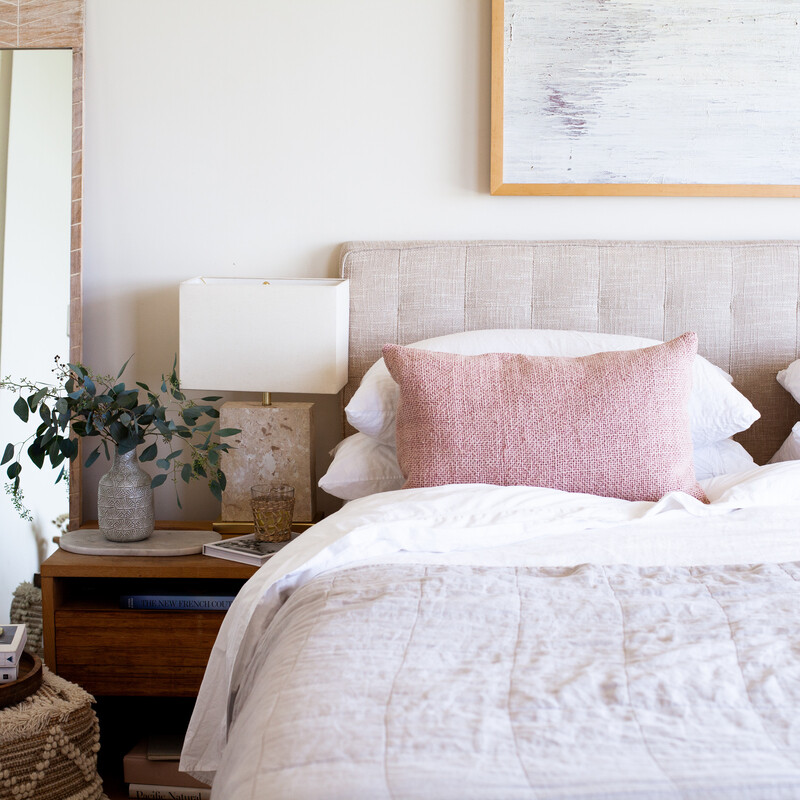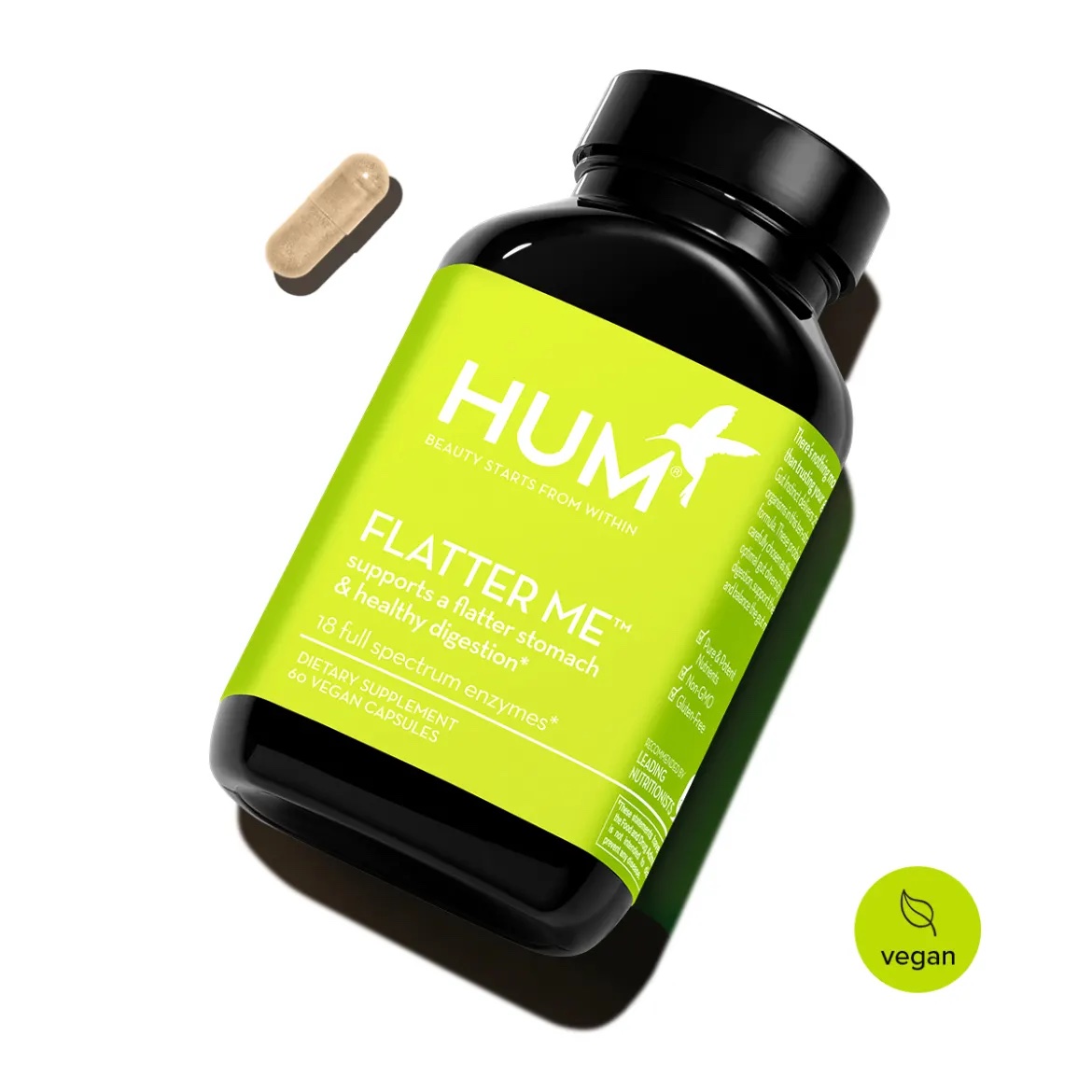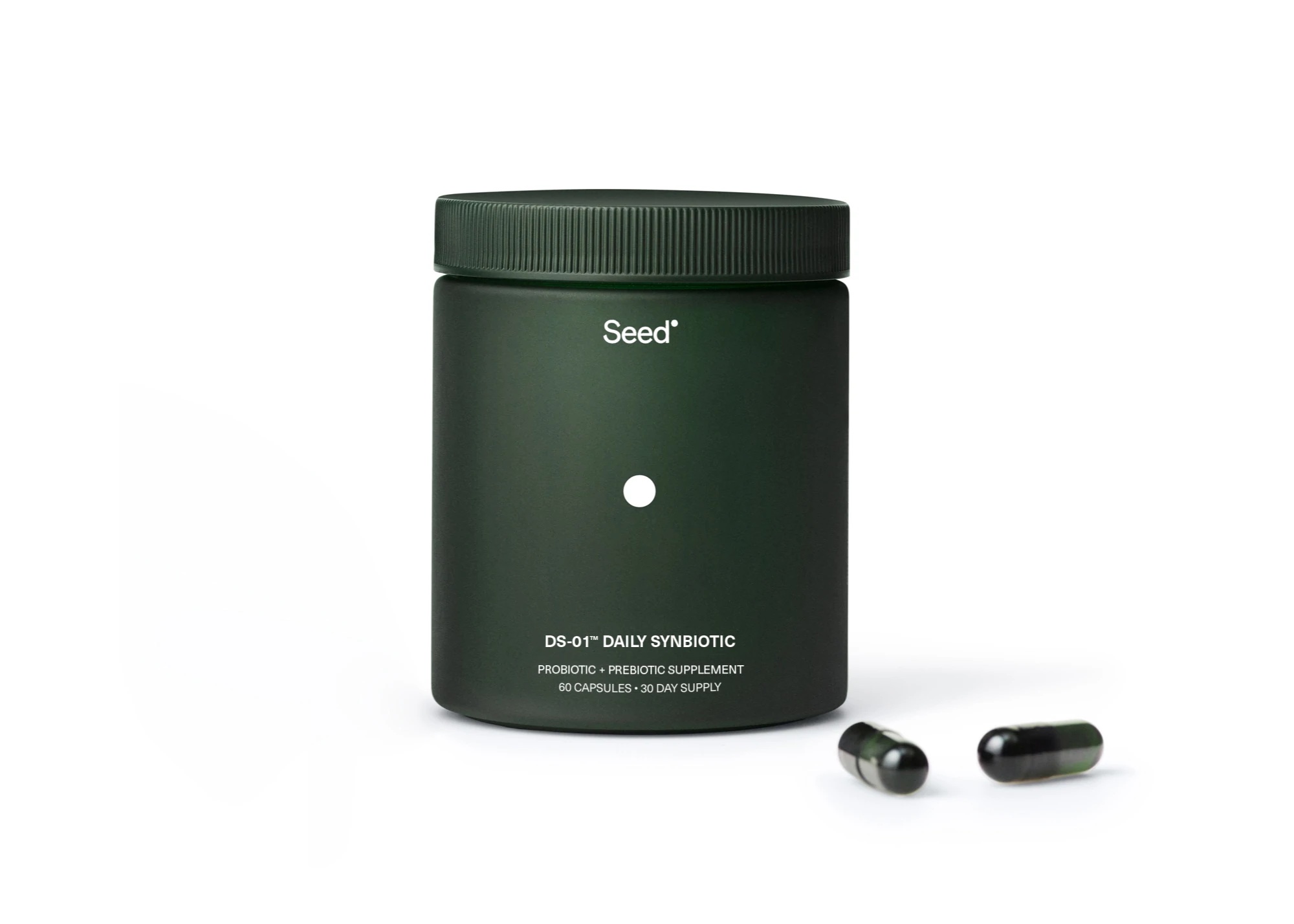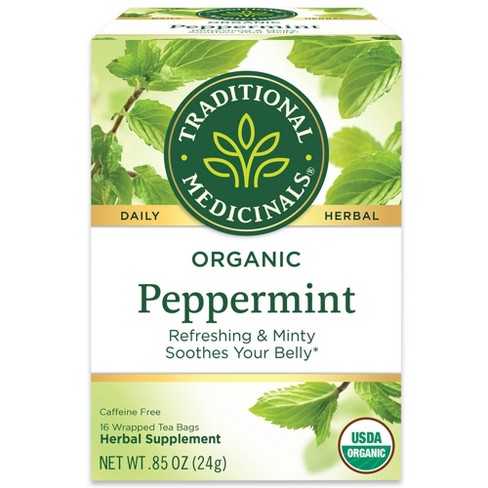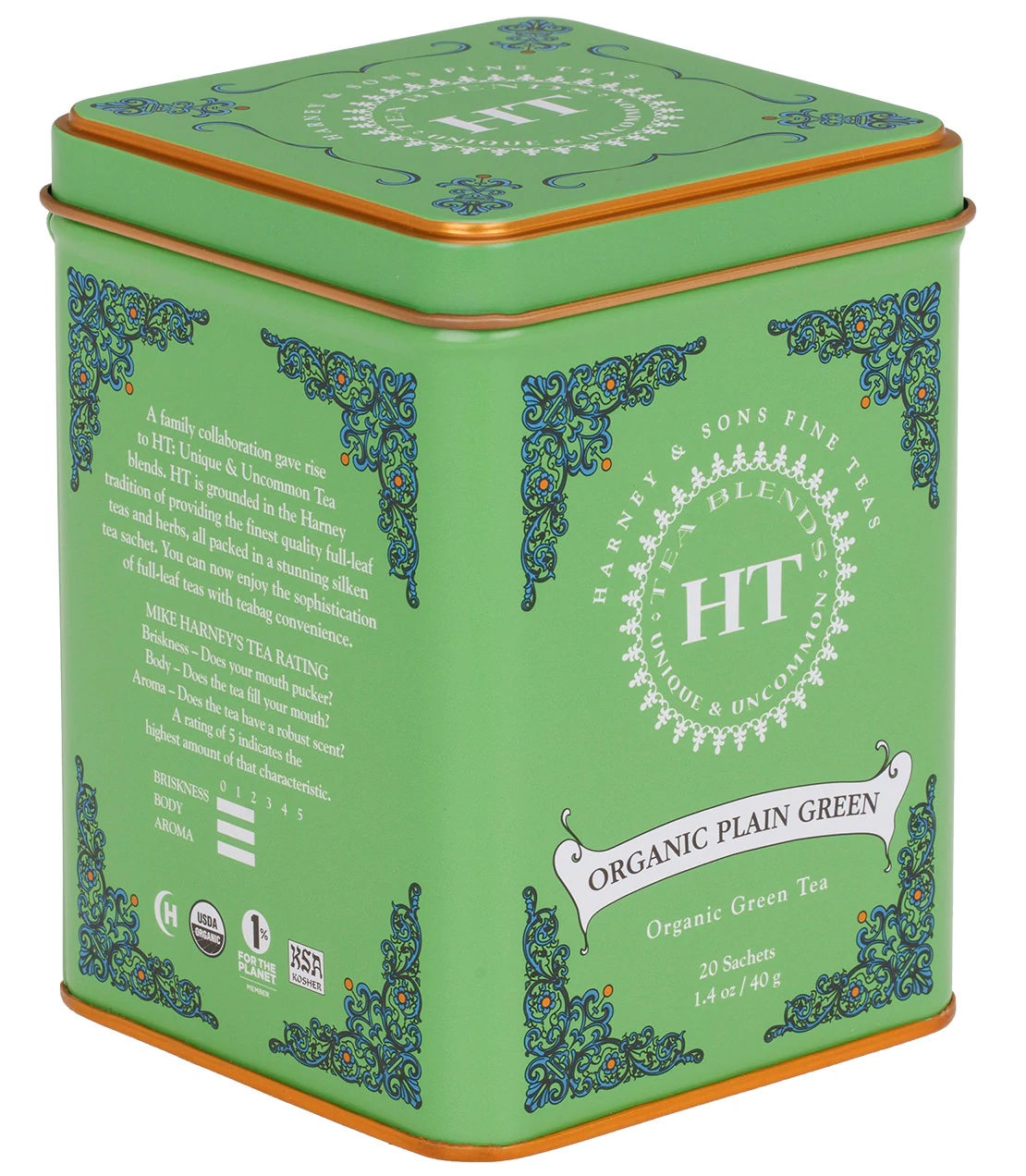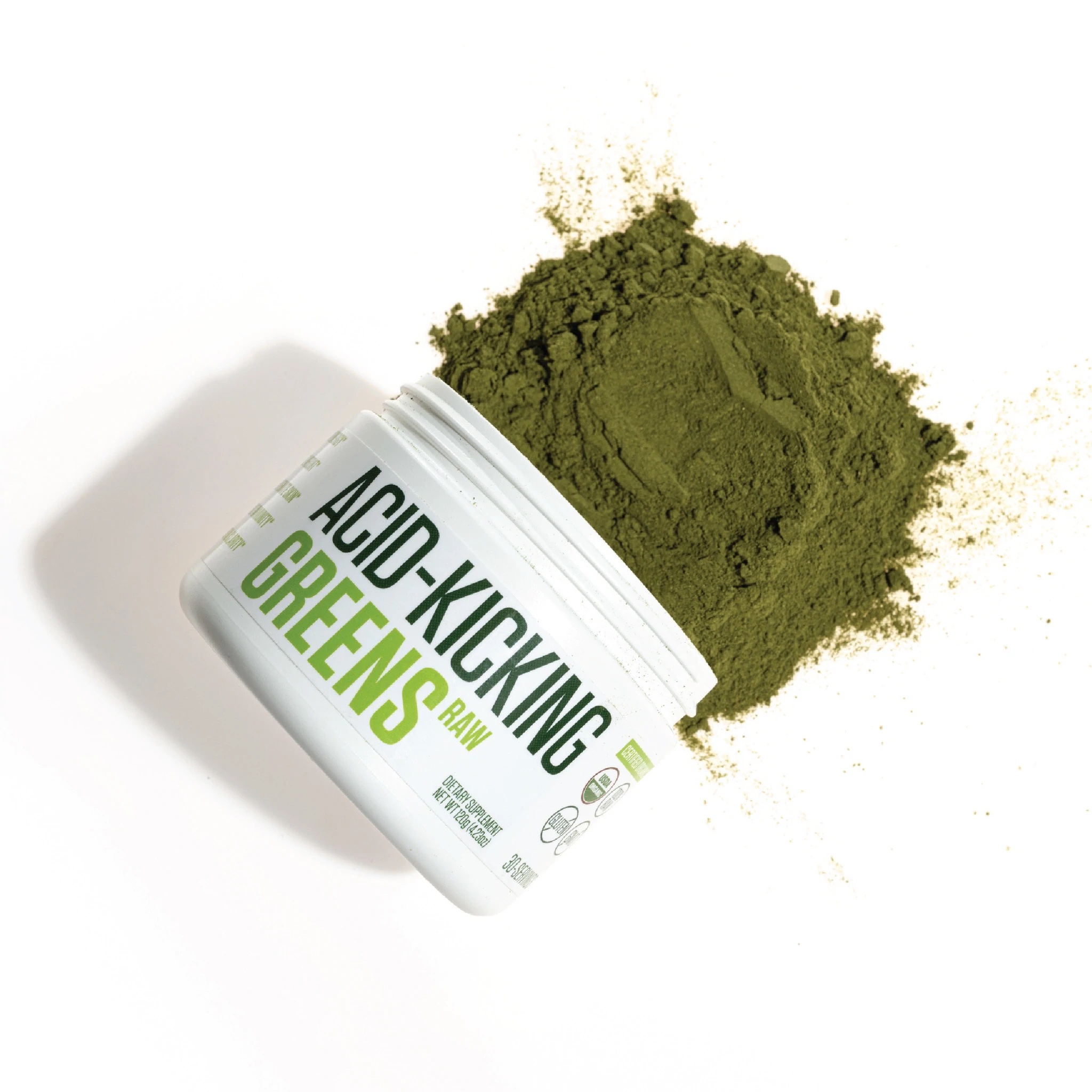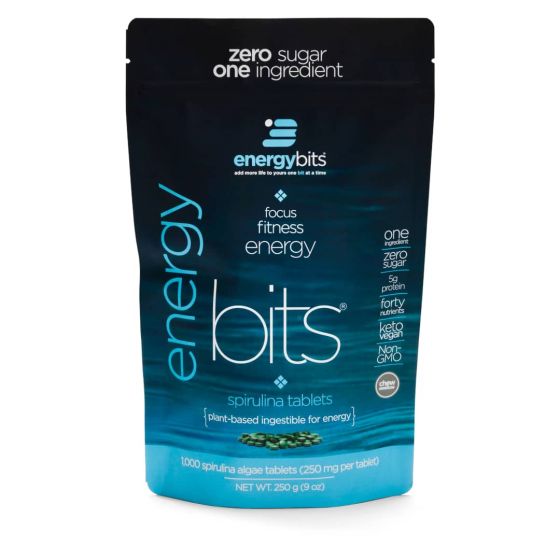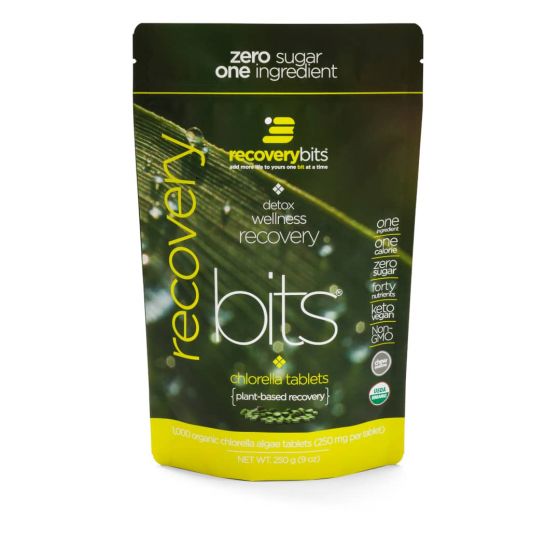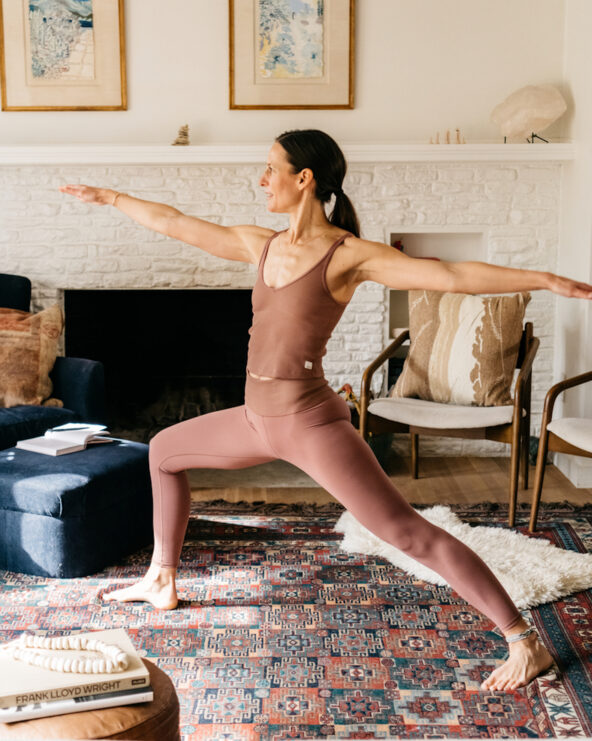Night owls, this one’s for you. If you’re familiar with the tossing, turning, and dragging your feet before detaching yourself from bed (i.e., your best friend) first thing in the morning, I see you. During the workweek, it can feel impossible to wake up and join the rest of society. Not gonna lie, sometimes even the promise of coffee or a delicious morning meal isn’t enough to motivate my early-hours routine. If you’re lucky enough to fall into the category of ‘morning person,’ you likely have no idea what I’m talking about. For the rest of us, the question of how to wake up easier is constantly on our minds.
You might be excited to dive into your to-do’s or can’t wait to kiss your kiddos good morning. Even the possibility of squeezing in an early workout might sound nice. But if you can’t find a way to peel yourself out of bed without six alarms and a slice of sunshine beaming through your bedroom curtains, making the most of your morning just isn’t going to happen. Desperate for a way to look forward to the hours between 6:30 and 8 a.m., I got in touch with Dr. Patrick Porter. A neuroscientist and founder of the brain-training platform, BrainTap, Dr. Porter knows a thing or two about answering what now feels like an age-old (but little-addressed) question: how to wake up easier.
Dr. Porter dives into the reasons you might be waking up groggy and fatigued, how to actually ditch the screens before bed, and the lifestyle changes that ensure a good night’s sleep. It’s time to fall in love with your morning wake-up call.
Feature image by Hannah Zahner.

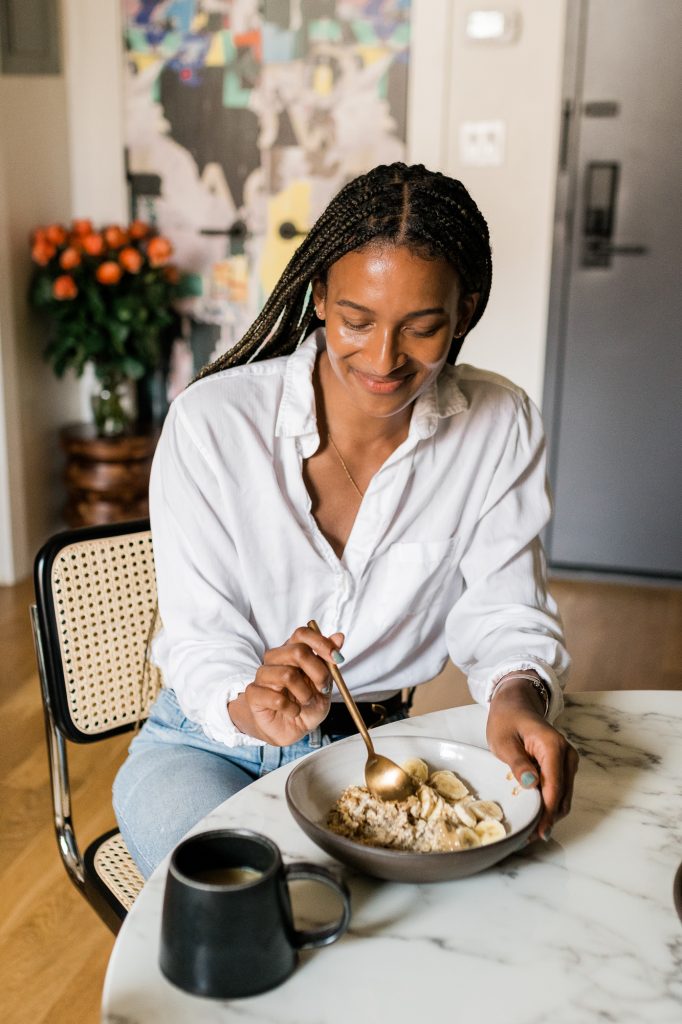
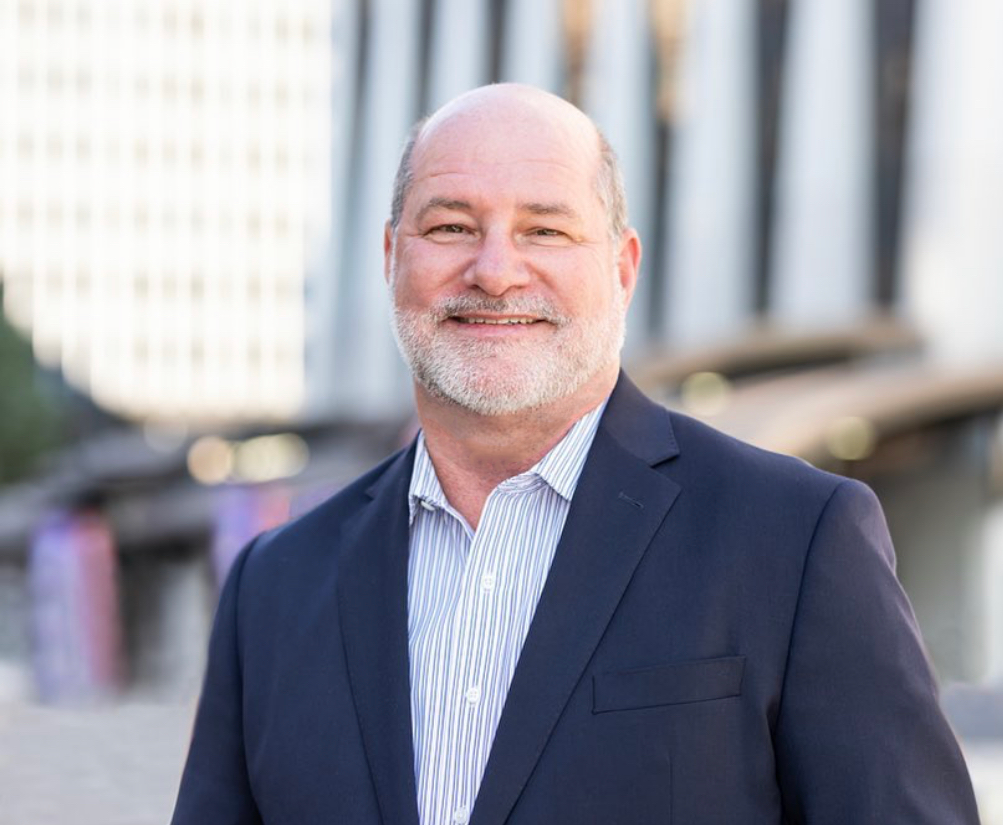
Patrick K. Porter, PhD is an award-winning author, educator, consultant, entrepreneur, and speaker. With 20 years of experience operating the largest self-help franchise in the world, he has become a highly sought-after expert within the personal improvement industry, having sold over 3 million of his self-help products worldwide.
Is it possible to wake up every morning feeling rested?
I was anxious to get to the meat of things right away. After all, if we’re desperate for a good night’s sleep and a day spent feeling refreshed and energized, there’s no time to waste. Thankfully, Dr. Porter confirms: yes, even in a go-go-go, never-stop world, rejuvenating sleep can be yours.
“When I studied the Silva Method many years ago, I was taught a process called sleep and wake control,” says Dr. Porter. According to him, it’s the reason those who wake up with enviable amounts of energy can get the sleep we all crave—and it all comes down to efficiency. “We have to start our sleep cycle in the morning, which means having a morning routine that includes grounding, getting fresh air and sunlight, doing some sort of exercise, practicing a form of mindfulness such as BrainTap, balancing the hemispheres of the brain, and getting the brain to regulate out of stress first thing.”

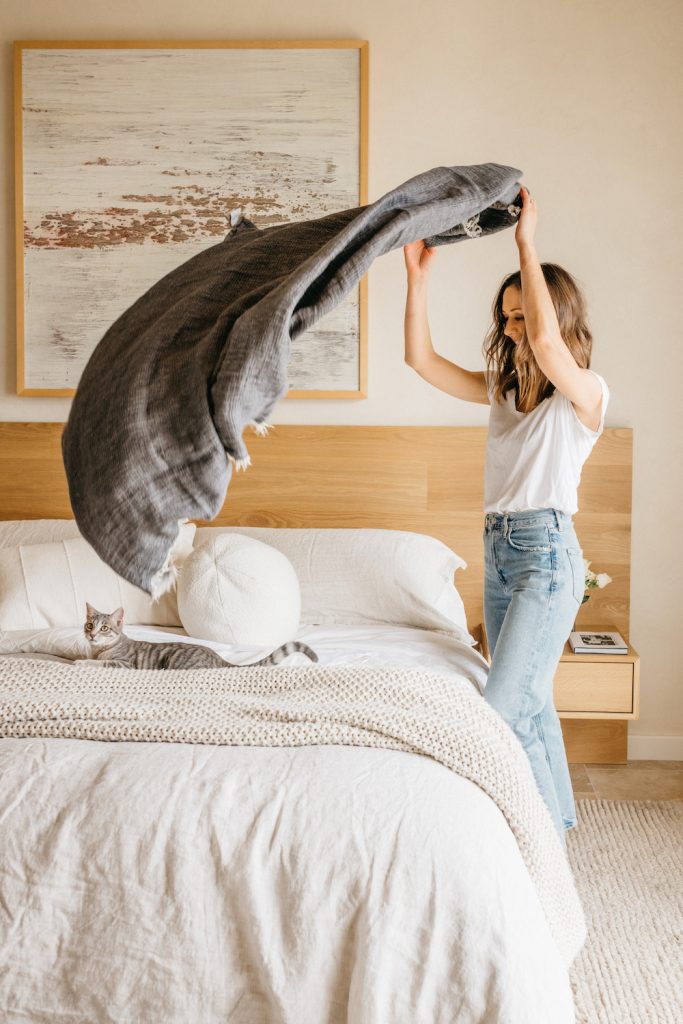
Even after getting the recommended 7-9 hours of sleep, people still often wake up tired and groggy. What might be the cause?
It’s well-cited and widely written about that getting 7-9 hours of sleep is ideal for adults. But even if you check this wellness box, you might still be waking up with little desire to get out of bed. Frustrating, I know. What gives?
“The biggest cause is that people don’t get enough deep sleep,” Dr. Porter observes—i.e., “they’re staying in a state of REM or light sleep.” He cites several possible reasons someone might not be getting quality sleep:
- Too much stress.
- Not having a good, consistent sleep routine.
- Evening exposure to too much light.
So what’s the key to sleeping well? While you shouldn’t forget about the National Sleep Foundation’s guidelines, the secret might not be found in the length of time you spend in bed. “What is absolutely necessary,” Dr. Porter emphasizes, “is 1-2 hours of real, deep sleep” (referred to as delta sleep or level four sleep). This period of sleeping gives the brain time to detox.
Following that, 2+ hours of REM sleep “allows us to process our dreams and our day and to take short-term memory and make it long-term. This helps with memory and focus the next day,” Dr. Porter notes.
As for the sleeping hours that remain? Our bodies and brains use them for rest and recovery.

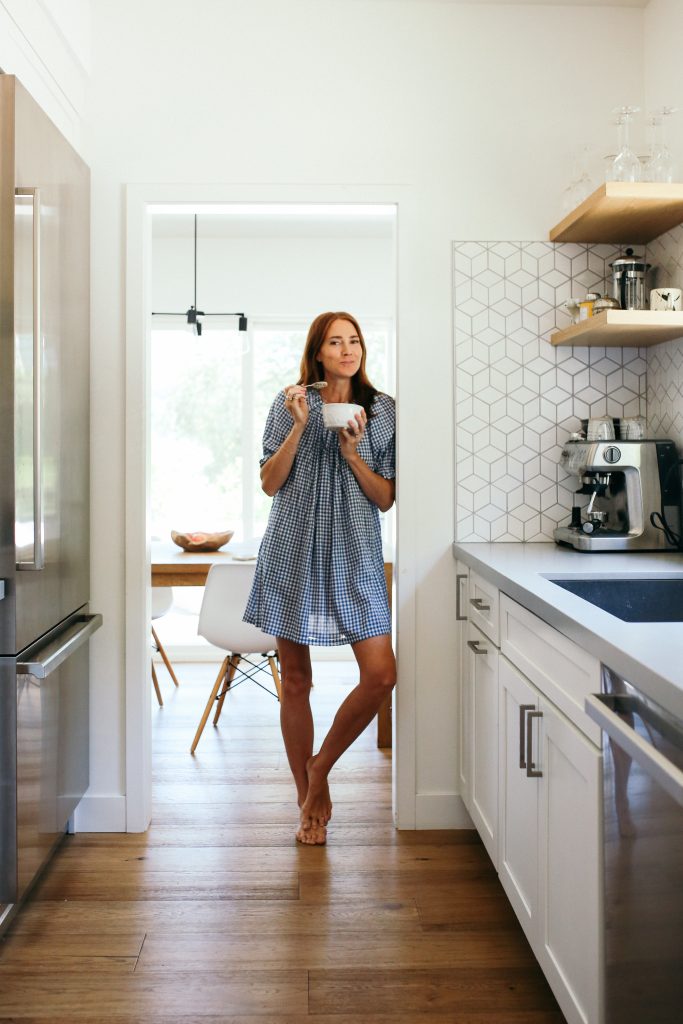
Is it really necessary for everyone to get 7-9 hours of sleep? Can some folks function better on less or more?
If you just can’t get yourself past the 6-hour mark, the time to rethink your sleep routine is now. “Most adults need between 6-8 hours of sleep,” suggests Dr. Porter. The good news though, is that there is no research to suggest that you have to go above and beyond 8 hours to feel well-rested. “In fact, it’s the opposite,” says Dr. Porter.
We each come with our own individualized sleep needs. To find that sweet spot for yourself, Dr. Porter suggests using your PTO or taking a vacation to experiment with sleep. Here’s how it’s done:
- Set aside a few days where you don’t set an alarm.
- Go to sleep at your normal time.
- Take note of when you naturally wake up and get up! No snooze necessary. (Dr. Porter notes that it’s OK to take a nap later on.)
“After 3-4 days of this, you’ll naturally regulate and find the amount of sleep you really need,” says Dr. Porter. “Most people are going to find that they only need between 6 and 8 hours and any more than that will make them more tired because they’re waking up in the wrong sleep cycle.”

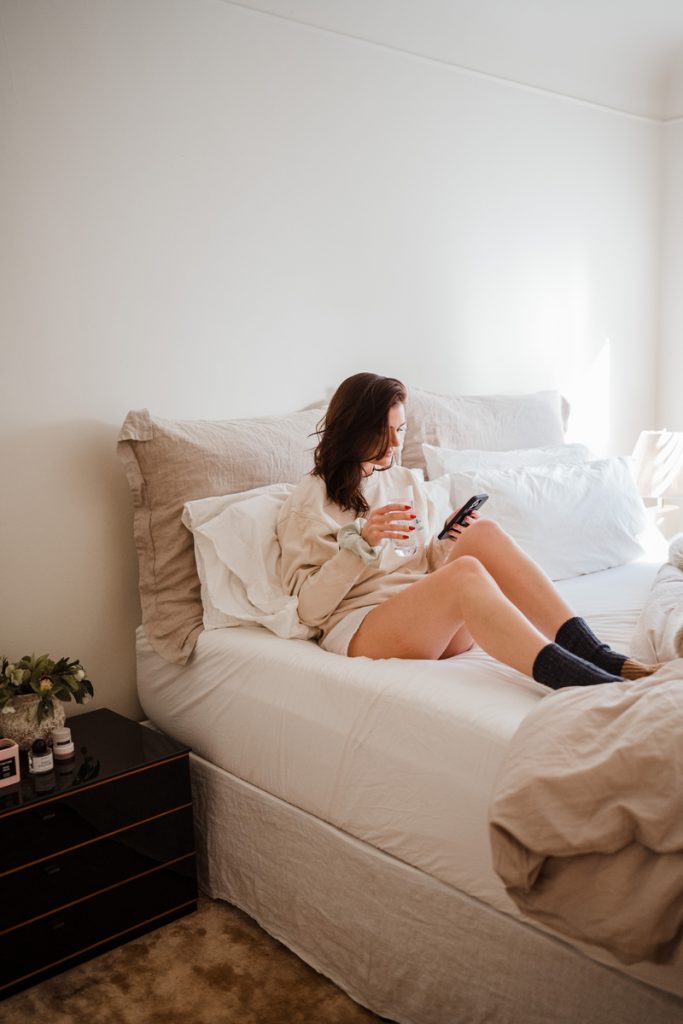
The enemies to a good night’s sleep: our phones, screens, and technology. Powering them down as we prepare for bed can feel impossible—how do we make it happen?
Interestingly, Dr. Porter cites the light in our homes as being more detrimental to a good night’s sleep than our screens, tablets, or phones. To get in the habit of turning things off, set a timer reminding you to turn down the lights two hours before bed. A few more key tips from Dr. Porter:
- Don’t check the news until morning. This means shutting off all apps and news notifications at least three hours before bedtime. “For some people,” notes Dr. Porter, “consuming news can be extremely agitating and interfere with sleep.
- Drink less water. We’re forever fans of staying hydrated, but middle-of-the-night trips to the bathroom can, for obvious reasons, disrupt sleep.
- Silence your phone. You’ve heard it before, but that doesn’t make this tip any less important. “Another good habit,” Dr. Porter suggests, “is to set your phone to bulk all your messages to be delivered every few hours or twice a day. It’s OK to let people know you’re not going to be available between certain hours, for example, after 8 or 9 p.m.” That way, you’re covered in case of an emergency, but you won’t be tempted to look at your phone every time you hear a ding.
Prepare yourself for a harrowing statistic: “The average person looks at their phone more than 300 times a day,” notes Dr. Porter. Not only does the blue light negatively impact your sleep, but the hit of dopamine every time a text comes through hits you with a stream of stimulating dopamine.
“We’re driving dopamine, which is driving emotion, which drives our behavior,” says Dr. Porter. His #1 tip when it comes to breaking up with your phone and saving your sleep? “I recommend intermittent fasting for technology. You’ll notice that in the same way intermittent fasting works for your metabolism, a tech fast will help your brain work better,” the neuroscientist notes.

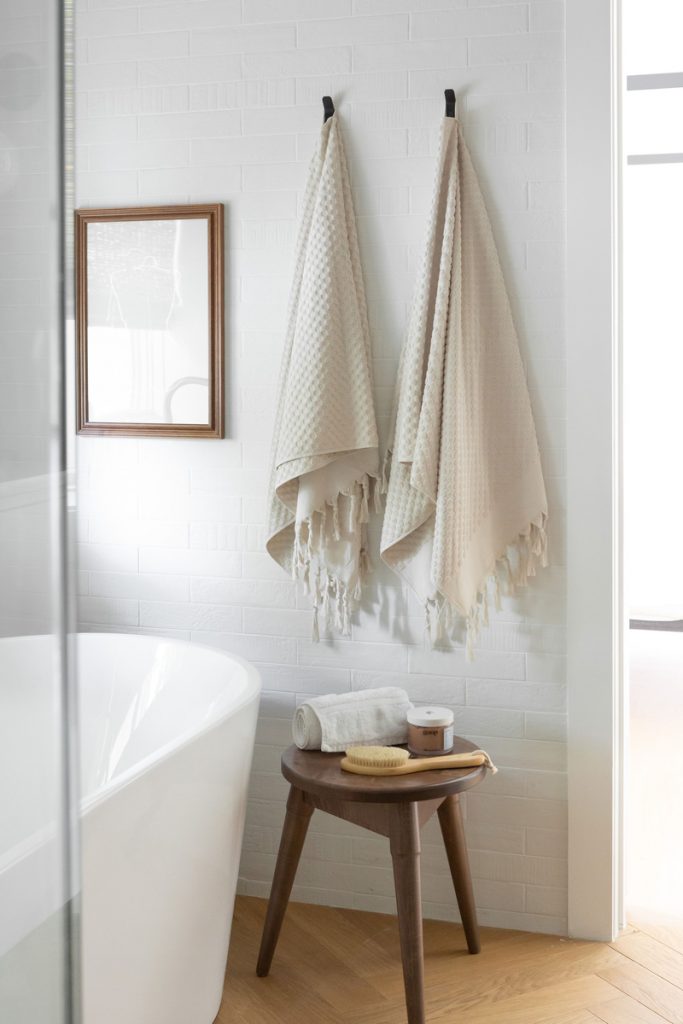
What should a sleep-supporting nighttime routine ideally include?
Dr. Porter measures the quality and effectiveness of our sleep routines based on a ranking of good, better, and best.
A good sleep routine includes: Start by turning off the lights in your home two hours before bed, as Dr. Porter suggests above. From there, set your phone to silent so you’re less tempted by your screen. “Putting your phone in a different room than the room you sleep in at night is another good plan.”
A better sleep routine includes: To improve your chances of getting a good night’s sleep, ditch any stimulating TV several hours before bed. Dive deep into your favorite comedies, avoiding any stressful content. “This can engage your left brain in fear,” observes Dr. Porter. “Fear is the one thing that prevents our brain from working at peak performance levels.”
The best sleep routine includes: If you really want to take your nighttime routine to the next level, start implementing Dr. Porter’s tips above and add “putting your phone away several hours before bed.” Permission to indulge in a warm bath with Epsom salts or do any ritual that feels particularly relaxing for you. Listen to calming music and reboot your reading hobby (preferably a real book and not a tablet, recommends Dr. Porter).
Let’s commit to collectively adopting healthier sleep routines yesterday. Start with a good routine, work your way to better, and once you feel confident in those practices, you can reap all the benefits of the best before-bed routine.

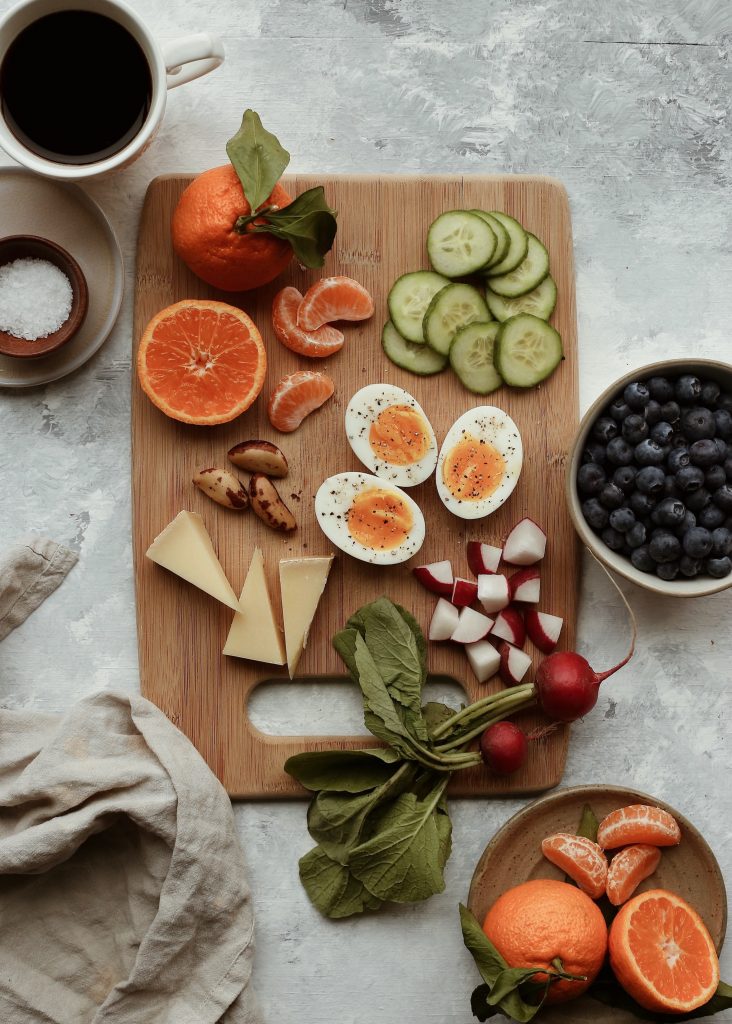
What’s the #1 lifestyle change people can make to ensure a better night’s rest?
You’ve heard it before, but we’re here to say it again: decrease your sugar consumption as much as possible. “Sugar is a toxin and it stimulates most of our activities in the body,” says Dr. Porter. “This prevents the body from getting into a deep sleep cycle while it’s trying to detox from a sugar overload.”
The second best lifestyle shift? While you should avoid drinking water immediately before bed, Dr. Porter suggests upping your intake throughout the day, aiming to consume “half your body weight in ounces of water. Your brain is a hydro engine and needs water to function properly.” He adds that “you need proper energy to get proper sleep.”
Finally, the third change you can start making today is to “stop eating solid foods at least three hours before bedtime,” Dr. Porter advises. Opt for a nighttime meal that’s full of healthy fats and less protein. Deeper, fuller sleep awaits.

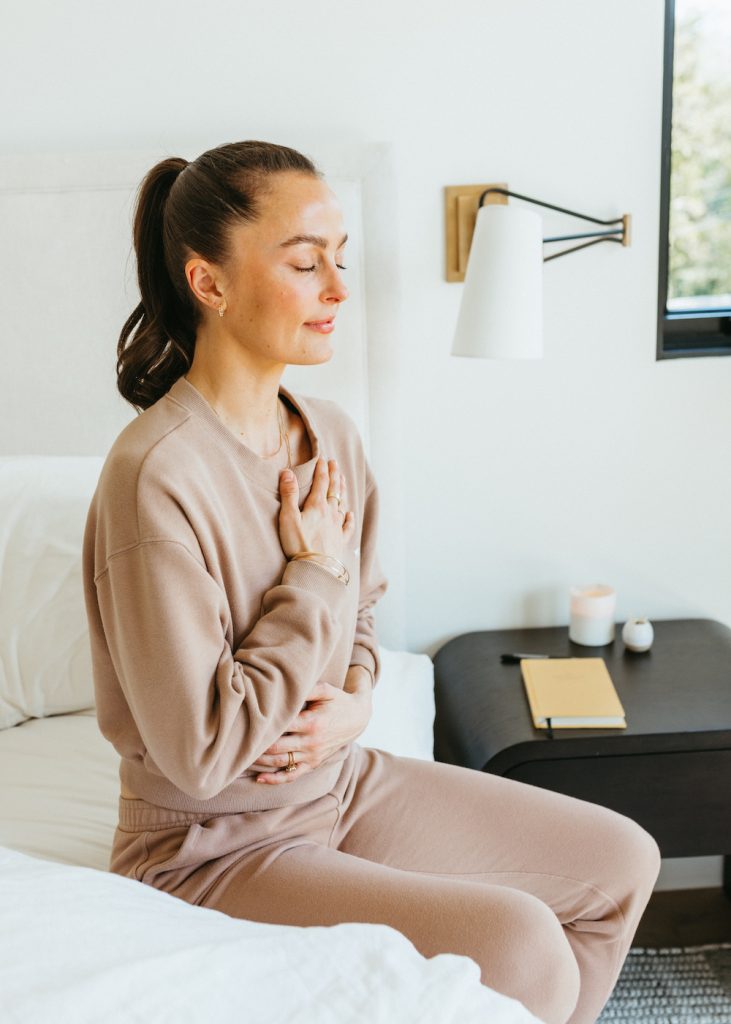
What can we be doing throughout the day—from first thing in the morning to our working hours—to support a good night’s sleep?
Spending a little time with your thoughts first thing is ideal. “Try some form of breathwork meditation, mindfulness, or a BrainTap session,” says Dr. Porter. He loves these practices for the early morning brain balance they provide. Any of these options “get your brainwaves tuned up so they’re ready to work for you during the day.”
Short on time in the morning? Try waking up a few minutes earlier to carve out time to make this happen. The thought of waking up even earlier might present a challenge, but the effects that weaving a little mindfulness into your morning are well worth it. According to Dr. Porter, just 10 minutes of mindful breathing or meditation “can be equivalent to 2-3 hours of sleep.”
Not only is this a good practice to incorporate into your morning routine, but it can do wonders in terms of helping you avoid the dreaded afternoon slump. Dr. Porter tells me that our body temperature drops in the mid-afternoon (specifically around 2 p.m.), causing the dip in energy we all know too well. “If you can take 20 minutes during your lunch break or right after work to do some breathwork, mindfulness or meditation such as BrainTap, you’ll be rebooting the brain. This is key for being able to sleep better at night.”


What and when should we be eating at the end of the day so that our sleep isn’t disrupted?
If you’ve been reading the site for a while, you know we’ve all be influenced by Camille’s love of salmon. Good news—our favorite meal gets Dr. Porter’s sleep-inducing seal of approval. “My favorite meal for a good night’s sleep is wild-caught salmon.” Wild-caught is key, because it delivers a healthy dose of the good fats our bodies and brains need.
Get Camille’s recipe for Slow Baked Citrus Salmon with Fennel & Herbs
Avocados are another good choice. So if you’re like us and love capping off the night with a slice of sourdough topped with the creamy fruit, permission to proceed. Avocados pack not only key vitamins and potassium, but magnesium as well, promoting muscle relaxation.
“A healthy meal should contain 60% healthy fats,” says Dr. Porter. Think: olive oil with salads or drizzled on any dinner you serve up. As for when to eat, a few hours before bedtime is imperative. Can’t make that happen with work or family obligations? Dr. Porter says to double down on the healthy fats. “Otherwise, depending on your metabolism and what you ate before bed, your body is going to be spending its resources digesting that food while you sleep and not performing the necessary detox functions it’s designed to do.”
Final words on the ideal nighttime eating window: Eating early enough lets the stomach process your meal into “the main processing part of the intestine before bed.” This way, digestion doesn’t mess with your sleep and you won’t have to worry about acid reflux. A tiny tip from Dr. Porter: “I also recommend people take a good digestive enzyme at every meal.” These supplements will “clean up any extra fats hanging around that constitute negative cholesterol in the bloodstream.”

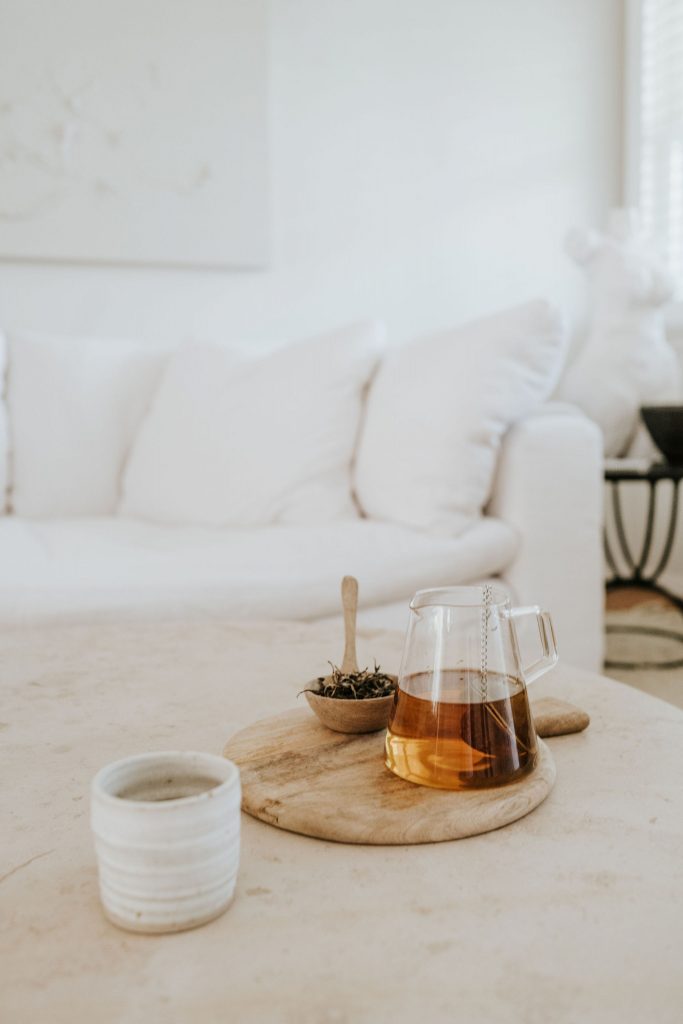
Shop Dr. Porter’s Picks for Waking up Easier
Dr. Porter loves sipping on different teas depending on the time of day. “I like peppermint tea in the morning because it’s a stimulant without caffeine. It’s going to give you energy and it helps clear our toxins in the bloodstream.
Following that? A green tea that delivers plenty of antioxidants. “Part of the anti-aging protocol for eating and living longer is to neutralize as many antioxidants as possible.” Psst… if you like your teas with a little sweetness, Dr. Porter says stevia is best because it doesn’t raise blood sugar levels. “Blood sugar is most important to keep normalized.”
As for effective supplements, Dr. Porter cites the energy-supporting effects of nitric oxide taken both in the morning and at night. “Nitric oxide has been found to help with so many body functions and helps with vasodilation and blood flow.”
Experiencing the not-so-great effects of inflammation? Dr. Porter recommends a supplement called Get Off Your Acid. “This is a supplement I believe everyone should be taking in the morning in your green drink.” (Speaking of green drinks—smoothies or juices—Dr. Porter emphasizes letting it be your first beverage consumed during the day.)
Alkamind Acid-Kicking Greens Raw
Get Off Your Acid helps neutralize acidity in the bloodstream and helps the body function at its peak. — Dr. Patrick Porter
Daily, Dr. Porter also takes Energy Bits and Recovery Bits supplements. “These are blue and green algae that you take at different times during the day. They don’t impact your blood sugar and one tablet offers the nutrition of a salad.” Don’t get enough greens? These are a great option.
Last but not least: vitamin D, specifically one that’s prescribed by a functional medicine doctor, adds Dr. Porter. “I use the Optimum Health System brand of vitamin D. This essential fat supplement helps our body get the necessary healthy fats it needs to perform properly.”


